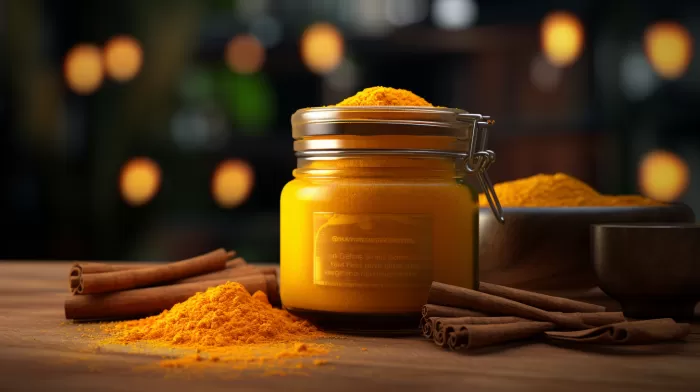Skin inflammation can be painful and, in extreme cases, lead to infection or scarring. Many people look for safe and effective ways to treat these ailments, specifically creams that contain powerful anti-inflammatory properties, like curcumin or turmeric. For thousands of years, curcumin, a compound found in the spice turmeric, has been widely used for its various health benefits. Studies have shown that the compound is particularly effective for both internal and external ailments. An extensive research paper published by dermatologist Dr. Madalene Heng from the University of California-Los Angeles unveiled promising findings for those suffering from burns, eczema, scalds and other skin conditions.
Dr. Heng based her findings on 25 years of research she performed on patients in her clinic. In this time, she determined that curcumin gel accelerated the healing of burns and scalds, alleviated pain and inflammation, and reduced scarring. Curcumin’s remarkable benefits are primarily due to its ability to inhibit an enzyme named phosphorylase kinase, which is released when the skin responds to wounds. The enzyme contributes to the redness, scarring, and inflammation that occurs during the skin’s natural healing process. By inhibiting this enzyme, curcumin speeds up healing time, minimizes inflammation, lessens pain, and reduces scarring.
Curcumin gel’s benefits for chronic skin conditions
Studies have shown that those with chronic skin issues such as psoriasis and eczema can also benefit from topical curcumin. Psoriasis, a condition that triggers the release of phosphorylase kinase, can be treated using curcumin. In 2000, Dr. Heng published a study showing that drug-induced suppression of this enzyme alleviated the symptoms experienced by psoriasis sufferers. Moreover, she recently published another paper revealing the potential of using curcumin to treat the skin condition due to its ability to stop the release of phosphorylase kinase.
Throughout her research, Dr. Heng discovered that combining topical curcumin with topical corticosteroids and removing elements that promote the release of the enzyme (such as allergens, fungi, and bacteria) significantly helped psoriasis sufferers. This treatment technique cleared psoriasis symptoms in 70% of participants in just six weeks. Remarkably, 60% of these patients experienced long-term remission without the need for further treatment.
How to harness the power of topical curcumin
While some people with acute or chronic skin problems take curcumin internally to promote healing, research indicates that the true benefits come from applying the compound externally. It’s advised that those who want to increase their use of this powerful anti-inflammatory take a turmeric supplement, as turmeric is a whole food and is better absorbed by the body than isolated compounds like curcumin.
When it comes to topical application, it is perfectly fine to wear a cream or gel made from curcumin. Many of these products can be found via a quick online search; however, they can be pricey. Cheaper turmeric creams can be found at Indian grocers, but make sure to read the label, as they may contain unhealthy additives like parabens. Additionally, some people find that making their own turmeric cream at home is a cost-effective alternative.
If you’re experiencing painful skin inflammation or chronic skin conditions, consider using a topical curcumin- or turmeric-infused product to help alleviate your condition. With its powerful anti-inflammatory properties and recent research supporting its healing abilities, it’s worth trying this natural remedy for healthier skin.



